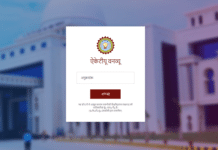It is the world’s oldest profession, but it is constantly looked down upon by society. Not always preferred by choice, but sometimes the only option. Prostitution is the profession which is battling the fight for legality right now. Should Prostitution be Legalised in India? Where exactly do we stand?
Why Prostitution Should Not Be Legalised
#1. People will stop learning, and resort to prostitution because it is easy money.
For a population that belongs to the group that earns less, is less educated and less skilled, prostitution becomes an easy money making option. This will enable people to simply avoid putting in effort and these people will resort to prostitution. This will lead to unrecognised potential and forte.
For a country where a considerable amount of population belongs to poor backgrounds, this can become a huge problem. Take the example of economically weak Venezuela that has 119 prostitutes for a population of 10,000 people. Venezuela, of course, tops that list.
#2. Hazardous fallback option for people fed up with their jobs.
Consider people who fail to prove their mettle in their respective jobs or are not satisfied by their jobs, they will be encouraged to turn to prostitution instead of improving their abilities and skills. This could not only boom the number of prostitutes, it will also create a lack of supply in other important careers on which the country’s economy depends.
#3. It will affect education at all levels.
As prostitution will serve as a source of easy money and facilitate as a fall back option, it can be assumed that certain sections of students will drop out after receiving primary education or even before, and prefer to provide services as sex workers, in order to get rid of further expenditure incurred on education and add to their savings by initiating work at an earlier age which will result into decreased desire for secondary education and the education conditions of the country will worsen along with an increase in unskilled labour.
#4. Morally wrong, demeaning, degrading & objectifying women.
There is an almost universally prevailing belief that prostitution is wrong at all moral levels. Members of many religions and cultures consider prostitution to be wrong, portraying it as a disrespect of the body and term prostitution as ‘impurification’ of the sacredness of the body. A solid majority of people also believe that prostitution promotes the act of objectifying women, thus treating them as merchandise.
#5. Prostitution is often forced, not always voluntary.
Although it is argued that a person’s body is his/her personal property, prostitution is not always voluntary. The report published by the ILO [International Labour Organisation] makes it quite clear that most women choose prostitution for economic reasons.
#6. Prostitutes can have a horrifying old-age.
What sells in prostitution is quite self-evident. The human body is subjected to uncontrollable forces of nature, one of them being the ageing process. As they say, time is the worst beautician one can ever have, the demand of those employed in prostitution decreases as they grow older, leaving them unemployed and unprotected in their old age without any social security programmes like pension to depend upon.
#7. No job security or guarantee.
This profession offers no job security whatsoever. Also, the number of customers per day cannot be guaranteed thus making it difficult for the workers to estimate their monthly income and determine their budgetary expenditure.
#8. Will legalising stop assaults on prostitutes?
Legalisation of prostitution does not necessarily reduce the violence suffered by various sex workers. For example, in spite of prostitution being legalised and regulated in Amsterdam, almost 60% of women report of being physically assaulted during work hours. According to a research, women engaged in prostitution possess the likelihood of being raped on an average once a week.
#9. The society might become unstable, our culture might head down the drain.
Legalising prostitution will increase the casualness of people towards sex and perhaps, even women. The guilt factor will fade, increasing the possibility of more people cheating on their spouses causing social instability in the long run. It will create a culture in which women can be bought and sold, and it is in such a culture that instances of assault done to women will increase.
Reasons why prostitution should be legalised
#1. Legalising will protect minors.
According to suggestions of various researches carried out globally, it can be estimated that as many as 10 million children are engaged in prostitution worldwide. Child prostitution exists in all the countries, irrespective of their level of economic development; the problem is observed in its severity in Asia and South America. By legalising prostitution and taking strict measures to regulate it, we can ensure the removal of minors from the profession, thus protecting their rights and confirming their safety.
#2. Regular medical checkups will reduce the spread of STDs.
Regulation of prostitution would include conducting regular medical checkups ups of sex workers and provision of adequate birth control tools, which will reduce the risk of sexual diseases being transmitted from workers to customers and vice-versa. It will promote cleaner working conditions and the process will thus become healthier and safer, which will be beneficial to both parties involved, as well as the society.
In 1998, a study carried out in Australia highlighted the fact that the prevalence of sexually transmitted bacterial infections was 80 times greater in 63 illegal street prostitutes as compared to 753 prostitutes working in legal brothels.
In the brothels of Singapore, every customer is provided with condoms as well as the facility to shower before and after the session. The prostitutes are required to maintain health cards which should be up-to-date. When a prostitute is tested positive with any sexually transmitted disease or infection, she is immediately required to stop providing services. The brothels have also implemented various measures to ensure the security of both parties.
#3. It will reduce the number of rapes and other sexual assaults.
With a legal and easier alternative available, people who wish to satisfy their sexual urges will resort to prostitutes rather than committing heinous crimes such as rapes for the same purpose. With closure of brothels in 1959, Queensland experienced a 149% increase in rate of rape.
#4. Removal of pimps and middlemen.
Legalisation of prostitution will lead to a systematic upgradation of the industry. The service of pimps and middlemen will no longer be required, leading to a decrease in criminal behaviour and an increase in the wages of the sex workers.
#5. Elimination of forced prostitution.
Once decriminalised, the entire industry will come under the sphere of legal control which will enable law upholders to detect instances of forced prostitution and help victims of the same. Not all ‘johns’ who visit sex workers hold criminal records or have the tendency to assault them, most of them are normal men with no criminal record and they wouldn’t want to indulge in the act with someone who they know or suspect isn’t willing to do it.
As far as the question of recognising the ones who are forced into the flesh trade and those who aren’t goes, the current hapless system makes it impossible to determine willingness. A legal system in place will check criminal behaviour and significantly reduce the smuggling and slavery of women and children.
#6. Taxation.
Prostitution in India is approximately an $8.4 billion industry. Legalising it and taxing the proceeds like any other business will provide an incentive for the government, and facilitate it in providing regular medical check-ups, and protecting the rights of people engaged in the profession.
#7. Right to Use Body according to free will.
Every person has the right to use his or her body according to their will. Portraying it as morally wrong does now depict anything but a skewed value system. If a person finds prostitution wrong, it is perfectly acceptable for them to stay away from it. Nobody has the right to force a person to adhere to somebody else’s moral standards. It can be said that prostitution is not oppressive, it is how it is practiced by some people that makes it oppressive.
#8. Police can do better work then.
If prostitution is legalised and regulated, government will save excess expenditure incurred on police, prison etc. and this will facilitate redirection of police resources to bigger problems.
#9. No downsides.
Alcohol, drugs, weed etc are prohibited because they impose serious threats to the health of a person. But unlike them, prostitution does not harm a person either physically or mentally, which is why placing a prohibition on it does not stand justified.
#10. Rights of workers will be protected.
Regulated prostitution protects the rights of sex workers. When a sex worker is sexually assaulted or not paid the agreed dues, he/she will have the right complain about the same and get it redressed.
Issues like human trafficking – something directly related to prostitution – are hard to analyse keeping in mind the both sides of prostitution. Even so, a good number of countries today allow prostitution legally. Countries like Netherlands, New Zealand, Venezuela, Indonesia, Greece, Germany, Ecuador, Canada, Nicaragua, ten counties of Nevada in the United States etc. allow prostitution along with pimping and brothel owning.
Countries like Argentina, Armenia, Austria, Belize, Bolivia, Brazil, Chile, Czech Republic, Denmark, Ethiopia, Finland etc. allow prostitution but do not allow brothel owning and pimping.
Bangaladesh allows female prostitution but male prostitution is prohibited.
If we look at it, prostitution, if done willingly by both parties, is a ‘victim-less’ crime. Prostitution when done voluntarily by adults, in-door, in a legal way, has no reasons to be unacceptable. So, can its practice be considered exercising human rights?
Let us know your thoughts in the comments below.
– Contributor, DU Times



















